KSU, Marietta, GA, USA | December 19-21, 2022


keynote speakers
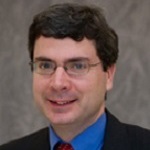
Michael Hunter, Ph.D |
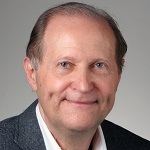
Jurek Z. Sasiadek, Ph.D |
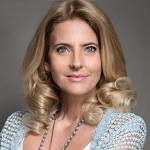
Simone Keller Fuchter, Ph.D |
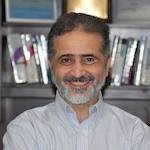
Ehab Al-Shaer, Ph.D |
keynote speakers
Title: The Uncertain Role of Emerging Technology in Quality of Life and Smart Cities |
|
|
Dr. Michael Hunter
Prof., School of Civil and Environmental Engineering Georgia Institute of Technology Dir., Georgia Transportation Institute |
|
|
Abstract:
This talk will highlight opportunities and challenges when considering emerging technologies and smart communities. Utilizing autonomous vehicles as an illustrative emerging technology, it will be seen how many aspects of a community may be influenced, with the ultimate impacts yet unknown. While equitably improving quality of life is the definitive goal, great uncertainty exists in the underlying implementation assumptions, initial applications, needed technological advances, user acceptance, and economic realities. The talk will build on this base example to further explore unseen potentials and pitfalls of ICT, IoT, and AI. |

Dr. Michael Hunter |
|
Speaker Biography:
Dr. Hunter is a Professor in the School of Civil and Environmental Engineering at the Georgia Institute of Technology. Dr. Hunter joined the faculty of the Georgia Institute of Technology School of Civil and Environmental Engineering in the 2003. Dr. Hunter has been highly active in research, teaching, and service and has been principal investigator of sponsored research, for a variety of sponsors including local, state, federal, and industry. Dr. Hunter has led two significant transportation research centers, the Georgia Transportation Institute (GTI, 2012 to present) and the National Center for Transportation Systems Productivity and Management (NCTSPM, 2012 to 2017). Dr. Hunter is actively researching smart cities, connected vehicles and infrastructure, and disruptive technologies within the transportations systems context. | |
Title: Navigation of Autonomous Robots |
|
|
Prof. Jurek Z. Sasiadek
Professor of Aerospace Engineering, Aerospace Robotics, Guidance, Navigation and Control Centre, Department of Mechanical and Aerospace Engineering, Carleton University, Ontario, Canada |
|
|
Abstract:
The paper presents the main problems encountered during navigation and control of autonomous vehicles. In general, problems related to autonomous navigation could be divided into two groups. First, involves mobile ground vehicles and second, unmanned aerial and space vehicles. The first group could be further divided into two sub-groups, first includes structured environments navigation and second, unstructured environments navigation and control. The second group will include unmanned aerial vehicles (UAV) and space vehicles. |

Dr. Jurek Z. Sasiadek |
| The most valuable tool in navigation of autonomous vehicles is sensor/data fusion method. There are many types of sensor/data fusion algorithms, and this paper will discuss how mapping and localization could improve navigation. There are several methods used to localize and build navigation maps. One of them is SLAM (Simultaneous Localization and Mapping), others are based on probabilistic estimation and filtering algorithms. In the last group, the most useful is Kalman filtering with its derivatives like Extended Kalman Filter and/or Unscented Kalman Filter with adaptation. Moreover, several artificial intelligence algorithms have been used in the last ten years like fuzzy logic and neural networks methods. This paper will review the available methods and present a few applications with a brief discussion of their accuracy and usefulness for navigation. | |
|
Speaker Biography:
Professor Jurek Z. Sasiadek received his Ph.D. degree from University of Technology in Wroclaw. He has been with several institutions in Canada including University of Alberta in Edmonton, Concordia University and McGill University in Montreal. He was also Research Director in Alberta Research Council in Calgary and Canadian Space Agency in Montreal. Since 1983 he has been affiliated with Carleton University, Ottawa, Ontario, Canada where he is Professor of Aerospace Engineering in the Department of Mechanical and Aerospace Engineering. His research interests include: robotics, space robotics, guidance, navigation and control of mobile and flying robots, sensor and data fusion, autonomous systems, adaptive control, aircraft and spacecraft control, flexible structure control, nonlinear control. Professor J. Sasiadek has served as Chair of IFAC Robotics Technical Committee (1999-2006) and an IFAC Council member (2010-2016). Currently, he is a President of the IFAC Canada. He served as an Associate Editor of IFAC Automatica(1994-2004) and now an Associate Editor of the IFAC Control Engineering Practice (CEP) and AIAA Journal of Guidance, Dynamics and Control. Prof. J. Sasiadek is a Director of American Automatic Control Council (AACC). | |
Title: Augmented Reality - Techniques and Possibilities |
|
|
Dr. Simone Keller Fuchter
Professor, University of Estácio of Santa Catarina, Brazil |
|
|
Abstract:
This presentation will comprise of Augmented Reality (AR) – a technology that overlays virtual components in real-world environment while users have a device to watch through it. In addition, virtual objects are added to the real world in real-time during the user experience. In order to join this technology, digital devices such as smartphones, tablets, and Virtual Reality Glasses can be used. The difference between Augmented Reality (AR) and Virtual Reality (VR) is that the second one (VR) creates a completely synthetic and artificial world, in which the user is completely immersed, and in the first one (AR), the user can see the real environment with virtual objects overlaid. So, based on these concepts, many fields are adopting this tool for training, education, entertainment, health, industry, maintenance, and other applications. This practice saves costs, and time and also allows users to experiment with otherwise dangerous situations from a safe-environment in a safe way. |

Dr. Simone Keller Fuchter |
|
|
|
|
Speaker Biography:
Dr. Simone Keller Fuchter, Ph.D, is Professor at the University of Estácio of Santa Catarina, Brazil and Researcher with in Production and Systems Engineering. She is part of the Johnson Space Center / NASA Houston 2018 Community of Virtual and Augmented Reality Practices. Simone is Certified as a Private Pilot by the Aeroclub of Santa Catarina and has researched aeronautic training as well using Virtual (VR) and Augmented Reality (AR). She is an advisor in the field of Augmented Reality (AR) at KSC International Space Academy, Space Camp Journey to Mars, and also Science Days. She is a member of the International Measurement Confederation(IMEKO)Technical Committee TC17 - Measurement in Robotics, TC17 Scientific Secretary and chairs the subcommittee on Augmented Reality Chair. | |
invited speakers:
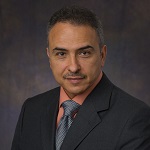
Hossam Hassanein, Ph.D
Prof.,
University of Alberta
Kingston, Ontario, Canada
Title: Anticipatory Radio Resource Management for 5G Networks and Beyond
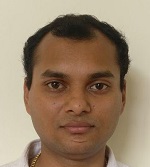
Satyam Agarwal, Ph.D
EE, Indian Institute of Technology Ropar
Ropar, Punjab, India
Title: Machine Learning Driven Signal Demodulation
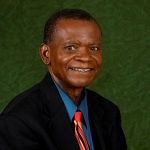
Abasifreke (Aba) Ebong, PhD
ECE, The University of North Carolina at Charlotte
Charlotte, NC, USA
Title: The solar cell architectures, cost and reliability for affordable and sustained photovoltaic electricity
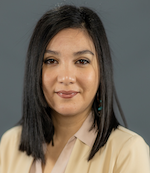
Maria Valero de Clemente, PhD
Dir., Internet of Things as Service Research Group
Kennesaw State University
Title: Pervasive Glucose Monitoring: A Non-Invasive Approach based on Near-Infrared Spectroscopy
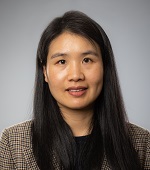
Beibei Jiang, PhD
Department of Electrical and Computer Engineering,
Kennesaw State University
Title: Solid-State Lithium metal batteries: Mapping Existing and Emerging Design Space




 conference program
conference program


